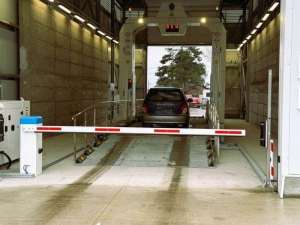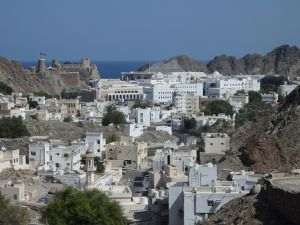• The Ministry of Economy is analyzing the functionality of several sections of the national oil pipe network
• Oil transit could be conceded to small-sized companies
The Ministry of Economy is planning to privatize or concede the national network for the transportation of oil by-products (gasoline, diesel or light liquid fuel) if any company appears interested in taking over 1,850 kilometres of pipes, which have been decaying since 2004. Not a drop of oil moved through the State"s oil pipes as the economic condition of the former concessionaire, Petrotrans, was growing increasingly worse. The company became insolvent in 2007, while the pipes decayed severely as a result of damages caused by oil thieves, long periods of idleness and lack of maintenance.
"The Ministry of Economy is considering any option (i.e. privatization or concession) that could lead to the optimal operation of this system, provided that the applicant is reasonable," reads a Ministry document provided to BURSA upon request. For the time being, the State"s oil pipe network is in a precarious condition and requires thorough technical inspections (including modern measurement and control equipment) and major repairs.
The pipe network in question was built during the communist regime at tremendous expense. A quick look into the past confirms what great losses the State has incurred. Some petrochemical specialists warn that the strategic investment initially intended to transport Iranian oil from Constanta Harbour to the refineries in Prahova Valley amounted to billions of lei at that time. Based on an agreement with Iran, Romania was to receive significant quantities of cheap oil from the Persian Gulf. The oil would reach refineries in Prahova Valley through the pipe network and become finished products, which would then be sold to Western markets at dumping prices. In exchange for the oil, Romania was supposed to give Iran farming machinery, construction materials or refined oil products. A long journey separates that plan to the status of today, when Ministry officials say "there is no market demand for oil by-product transportation via pipes."
Privatization "success stories" that still have not been clarified, insolvency, theft - were all factors that worked towards the decay of the national network for the transportation of oil by-products via pipes. The current lack of interest in oil transportation via pipes is quite interesting, considering that this option is much cheaper and faster than railway. The geographical distribution of the pipe network indicates that the system, structured onto two branches - one for domestic transportation (1,025 km) and one for exporting oil by-products (825 km) - also has a strategic importance.
The branches ensure the connection between the maritime oil terminal in Constanta and the refineries in Ploiesti and Pitesti or the fuel depots in Craiova and other cities. The network also ensures the connection between other intermediate points of the oil transportation network, such as Pitesti - Craiova, Midia - Constanta, Pitesti - Ploiesti and others.
While the refineries that once belonged to the State have been privatized, the pipe network remained with the State. Some sections of the network are currently used to ensure the connection between private refineries. This could mean that the private oil companies should be very interested in the pipes, as transportation costs would decrease and possibly so would the final retail price.
Representatives of the Ministry of Economy told BURSA that they were preparing a strategy in this respect: "The Ministry of Economy will consider the possibility of evaluating the functionality of the system organized as subsystems (independent sections) usable by the beneficiaries at the two ends of every section. The next step would be to concede both the good and the service to private operators of a smaller size, in line with the legal framework."
Another option would be to establish a State-run company to manage the pipe network. However, Ministry representatives explained that this option was not desirable for two reasons: Petrotrans, the previous company that managed the pipe network, had become insolvent because of theft and illegitimate interests and the fact that the transportation service did not qualify as a public service because it would be offered to private companies.
However, opinions differ as regards the public interest in this matter. There are specialists who claim that the State could start a major business with the pipe network and tap both the oil transportation market and ongoing gas transportation projects of a regional scope. In turn, Ministry specialists refuted the idea of using the respective pipes for gas transportation because of leakage risks and violations of applicable laws: "The pipes in this systems were designed only for oil by-products. This system is exclusively for gasoline, diesel and light liquid fuel and it cannot be used for transporting crude oil or natural gas."
Specialists contacted by BURSA admitted that the pipes could be converted to transport gas, but with substantial spending and significant technical difficulty.











































